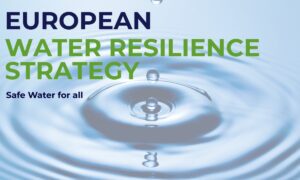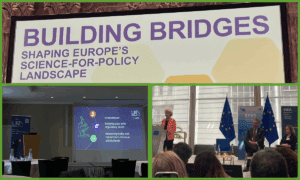The European Parliament’s STOA Forum for Academic Freedom, launched in 2022, addresses the challenges academic freedom faces in Europe and beyond. With reports indicating a decline in academic freedom, the Forum aims to foster open dialogue and propose measures to protect this fundamental value. The STOA’s annual high-level conference serves as a key event for exploring solutions and is informed by the EP Academic Freedom Monitor, which will soon release its latest findings on academic freedom’s legal protection and practical challenges in the EU.
Keynote and Panel Discussions
The event was opened by Christian Ehler, STOA Chair, and Roberta Metsola, President of the European Parliament, highlighting the urgent need to safeguard academic freedom. Other keynote speeches from Andrzej Szeptycki, Poland’s Undersecretary of State, and Ekaterina Zaharieva, European Commissioner for Research and Innovation, reinforced the importance of academic freedom for democracy and innovation. The first panel discussed the legal and practical aspects of academic freedom in the EU, with contributions from Ehler, Marc Lemaitre of the European Commission, and Milena Žic Fuchs from the European Research Council.
International and Global Perspectives
In the session International Perspectives on Academic Freedom, experts like Christina Meinecke-Chalev from the UN and Villano Qiriazi from the Council of Europe discussed global challenges and efforts to protect academic freedom. Robbert Dijkgraaf, former Dutch Minister for Education, also contributed insights on international concerns. Additionally, Session II presented the findings of the Academic Freedom Monitor 2024, focusing on the constitutional legal protection of academic freedom in EU member states.
The Council of Europe’s Academic Freedom in Action initiative was highlighted as a key effort to strengthen protections for academic freedom. The initiative promotes legal reforms, democratises science, and addresses digital threats like online harassment. However, challenges remain, including the lack of a clear EU-level legal framework for academic freedom, which complicates enforcement.
Conclusion: A Collective Responsibility
The conference concluded with a call for shared responsibility in defending academic freedom. Policymakers, universities, and civil society must work together to ensure the protection of free thought, research, and democratic engagement. The forthcoming EP Academic Freedom Monitor 2024 will provide further insights into the state of academic freedom in Europe.
EuChemS, representing the European chemical community, was also present at the conference, underscoring the importance of protecting academic freedom to foster innovation and research across Europe.



